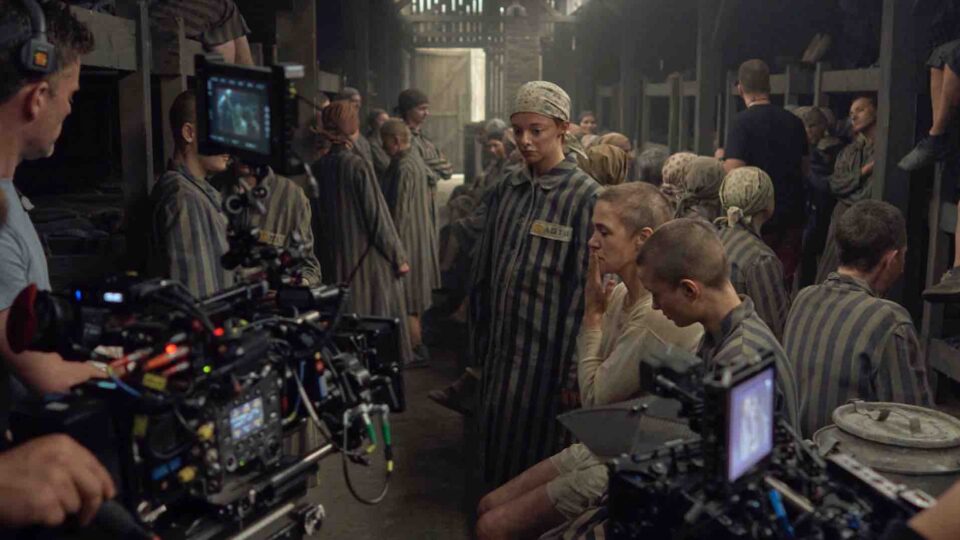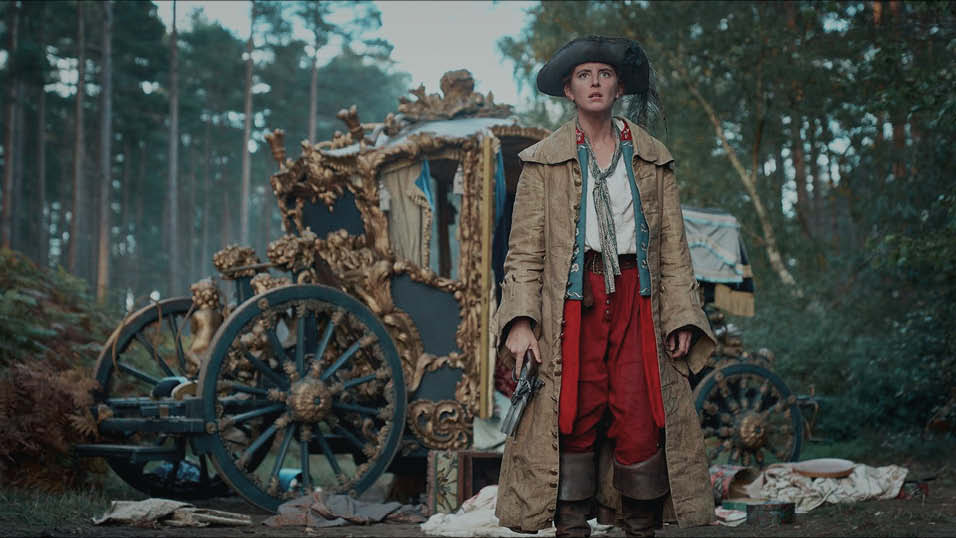Writer Paul Abbott tells Jon Creamer about finding the tone for No Offence and the right way to make writers work together
With credits under his belt like Shameless, State of Play, Clocking Off and Touching Evil, you wouldn’t expect Paul Abbott to get ‘stuck’.
But his latest drama series, the dark and funny No Offence that centres on a group of CID officers in Manchester, proved to be a tough one to birth.
The idea was solid, says Abbott. “I wanted to write a jet black comedy cop show” but the trouble was getting the tone right: “That’s taken ten years,” he says. The difficulty was finding a way between comedy and drama that wasn’t “comedy drama.”
His initial drafts “came out like garbage. It was too fat and it was too vulgar. It was like fly trap paper. You just got stuck in policing stuff or stuck in a comedy riff.” And even when he started working on it with a team of writers “the comedy thing got in the way. We were getting cop lines then gags, cop lines then gags. Even up to draft three or four. These things have to come together.”
It wasn’t that the comedy wasn’t working in itself, he says. “They’d be brilliant gags that we all laughed at and said we can’t wait to make this. Then a week later we’re all saying ‘it doesn’t actually say anything. The gags are just there to inform the audience that it’s a comedy.’”
Getting it right “took ages, we cut it to absolute ribbons” and, he says, the team found that as they played the characters straighter and straighter “the funnier it got.”
The trick of it was also to keep the best of a police procedural too. “I thought we need to abduct the crime addicted audience and give them a really good time somewhere else” but while doing that ensure “you’re not disappointing them on the procedural.” And that became an imperative. “If we’d done a really good sophisticated piece of funny stuff that we were all really satisfied with but then the scripts were just hanging like broken arms, there’s nothing for those people. You’ve lied to them.”
Peppered throughout his description of the creative process is the word “we.” Abbott is a big proponent of team writing and it’s a process he’s been honing since his days on Children’s Hospital and Coronation Street at the beginning of his career. His indie Abbottvision, which he set up in 2008, is formed around a writers’ studio. “About eight years ago I bought a house next door to the house I lived in. When I got divorced I moved in.” He turned the place into a writing studio where a team can spend a few days working together. “The writers get treated like kings when they’re there,” he says. But the physical proximity forces them to collaborate too. “It’s creative Stalinism. You have to drag these people in. They don’t want to leave their little boxes. You have to purposefully engineer the communitarianism of it.”
And he does that both at the Manchester studio and his house in France. “That is ace. It’s like a little psychiatric unit, all fenced off.” But to make the team writing system really work, it needs a few days for the barriers to break down. “All writers meet around tables. They go to hotels for a night but half of that is getting there and feeling uncomfortable about having to talk to people about your work intensively. Then you only get five hours of legitimate traction out of it.”
The real magic comes after a few days when the team doesn’t even realise they’re working, he says. “Everybody thinks they’ve finished work when they leave the table. But all they’ve done at the table is colour in the vowels of their own name on a pad. The minute you move them in to a big room where they can flop back on a sofa and you bring in coffee and cakes they all start singing like canaries. It’s fantastic to watch. They start to work because they’re relaxed,”
The process is about breaking down the writerly ego. “Writers don’t share. But it’s the wrong job for competitiveness.” Ideas are one thing but “nobody can take your voice away from you and you can’t nick somebody else’s voice.”
It’s also about forcing people to be “smart” rather than “smart arse”. “Using your intelligence as a weapon is a bad habit in this industry. You’ve got to knock it out of people,” he says. “A lot of people in the industry are so foul, so horrible to each other. They’re so busy trying to look intelligent that their emotional intelligence is void. They’re writing smart in a way that’s not convincing.” And in a way that doesn’t reflect the reality of the audience.
The key, he says, is to interrogate the writing again and again. “It’s rude to get it right first time. You’ve got to test it left right and centre” and not go down route one. Too many people make telly in a way that they think telly looks rather than how life looks, he says. And too much is written “right on the nose. It’s so literal and there’s no mischief to the storytelling. It doesn’t have to come out like sausages. The minute it works people leave it alone but the minute it works is the moment you should start creatively writing it.”
CV
Paul Abbott set up his own drama indie Abbott Vision in 2008. He has created, written and produced a huge run of successful dramas since his beginnings as a script editor and writer on Coronation Street. He created Children’s Ward with Kay Mellor and went on to write Linda Green, Clocking Off, thriller State of Play (subsequently remade as a movie), Touching Evil, Exile, Hit and Miss, Shameless and latterly No Offence. He has won three Baftas alongside a straining mantelpiece full of RTS, Emmy, British Comedy and Writers’ Guild awards.
Jon Creamer
Share this story

















